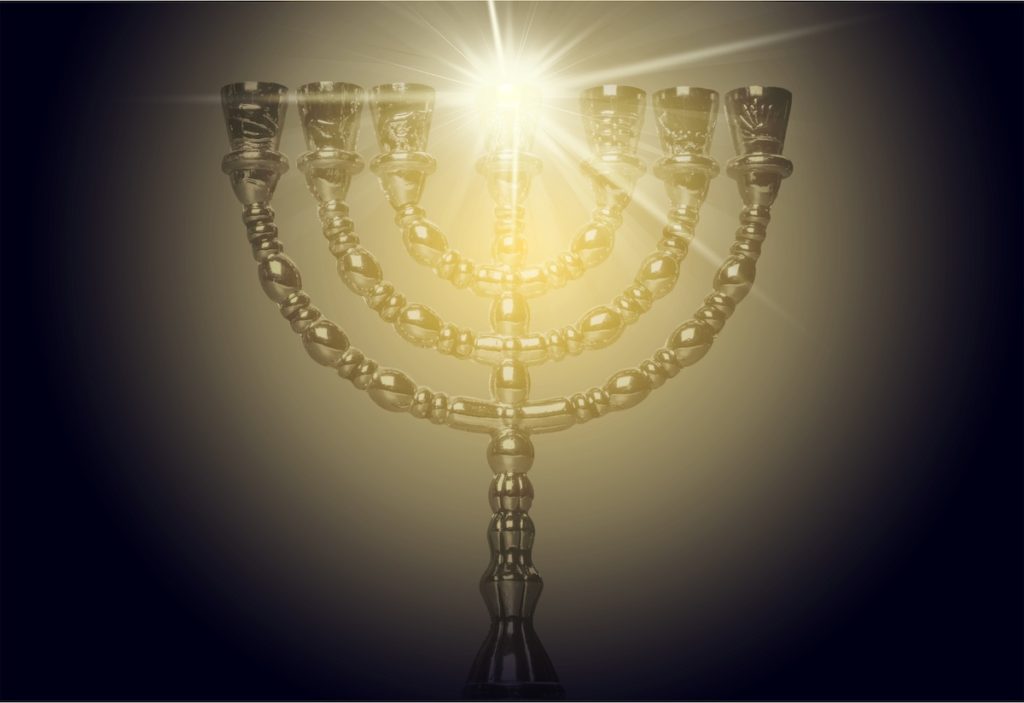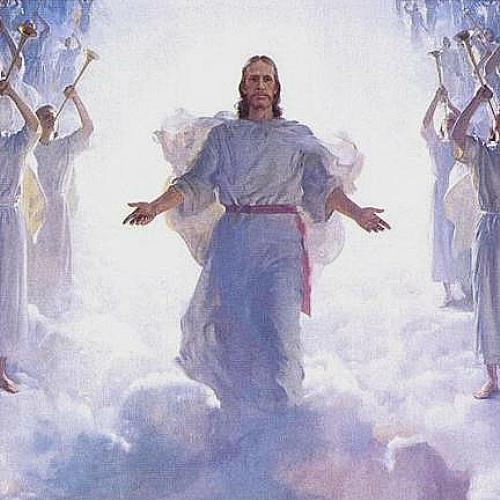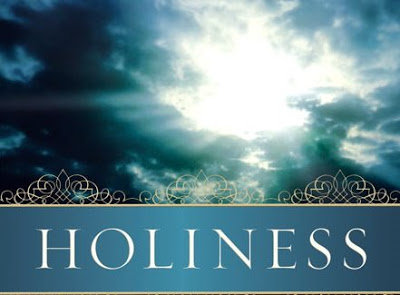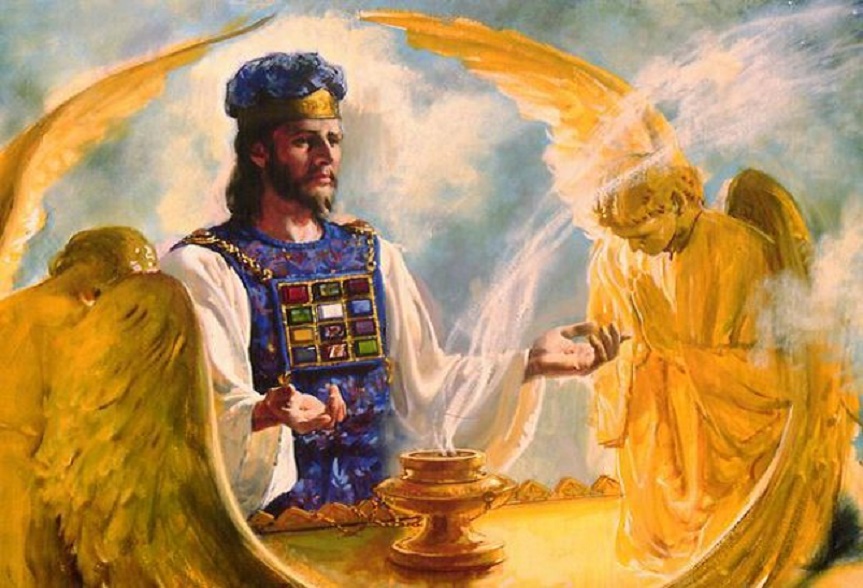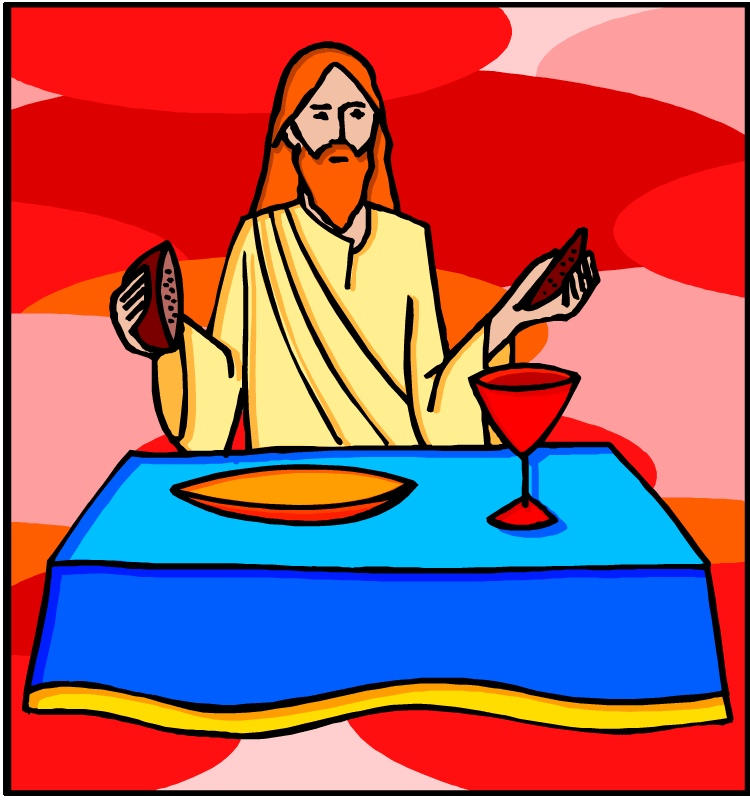
Romans 4:16, Abraham … the father of us all.
A spiritual relationship with Elohim based on trusting faith after the pattern of Abraham’s relationship with him is available to all men including those who are born and raised within a framework of Torah (e.g. the Jews), and non-Jews who were born and raised outside of a Torah framework. After all, it must be remembered that when Abraham came to faith in YHVH it is quite possible that he had no little or no background in or understanding of Torah. The same could be said of the Israelite slaves in Egypt when YHVH redeemed them because they had faith in the lambs’ blood on their door posts.
Romans 3:30 says that Israel received righteousness by the Torah (which, through the sacrificial system, pointed to Yeshua, the Redeemer and Living Torah), and the Gentiles receive righteousness through their faith in Yeshua (the Living Torah, which leads one to the righteousness of the Written Torah). In either case, both routes lead to the same conclusion—namely, a people who keep the Torah-commandments of YHVH and have faith in Yeshua, the Messiah. John lists these two criteria in Revelation 12:17 and 14:12 as the notable determiners of who the end-time saints will be. They are those who both keep the commandments of Elohim and who have the faith or testimony of Yeshua. This is an important fact that cannot be quickly passed over. Whether the end-time saints are Jews who came to faith in Yeshua through an understanding of and obedience to the Torah, or Christians who came into Torah-obedience through faith in Yeshua, the two groups end up in the same place arm-in-arm worshiping the same Elohim, trusting in Yeshua the Redeemer, and following his instructions in righteousness (the Torah).
The promises to Abraham were based on trusting faithfulness, and not just a legalistic obedience to the Torah-law, so that all his seed (both Jews and Gentile who would be grafted into Israel, see notes on Rom 11) might be included in his promises which would eventually not only encompass the geographical area of Israel, but the entire world as noted in verse 13. This in no way implies that Torah-obedience is incumbent only upon the Israelites and not upon Gentiles. Paul again and again makes it clear that the gospel message he is preaching in no way annuls Torah.
Father of us all. Paul says in a number of places that those who come to Yeshua are no longer Gentiles but are the children or seed (literally “sperm,” which is the meaning of the Greek word) of Abraham (Eph 2:11–19; Rom 4:16; 9:8–11; Gal 3:7, 9, 14, 28–29). The word gentiles as used in Scripture simply means “ethnic groups or nations.” There are many places in Scripture where Jews and Israelites are referred to as “Gentiles.” There is no class of people called “gentiles” in the spiritual body of Yeshua. As proof of this, Scripture uses the following terms for the redeemed of YHVH: the saints, the called out ones, or the one new man or the Israel of Elohim (Gal 6:16), which is another way of saying redeemed Israel or spiritual Israel. Any attempt by anyone to keep the Jew—Gentile division alive within the body of Yeshua is in effect keeping up the middle wall of partition that the Paul spent his life attempting to tear down (see Eph 2:11–19). This mission eventually cost him his physical life.
Furthermore, we must also keep in mind that there are only twelve gates through which one may enter the New Jerusalem, and these gates are named after the twelve tribes of Israel (Rev 21:12). There is no Gentile gate! The only way that one will be able to enter the New Jerusalem will be through spiritually identifying with the tribes of Israel. So which tribe are you?
Finally, YHVH, the God of the Bible, never made any covenants with non-Israelite nations—only with nation of Israel. To be in covenantal relationship with YHVH one has to accept the Jewish Messiah, and be grafted into the Israelite olive tree through the Messiah and become an Israelite—PERIOD! For example, the writer of the Epistle to the Hebrews clearly states that the New Covenant is made with the two houses of Israel—not the Gentile nations (see Heb 8:8 and Jer 31:31, 33). This may come as a shock to some people reading this, but this is the truth of Scripture.
Scripture reveals that there are only two classifications of people in Scripture: Israelites and non-Israelites or Gentiles (i.e. people of the nations). The former has eternal life because of their relationship with the Elohim of Israel through the Messiah of Israel. The latter group, unless they repent of their sin (i.e. lawlessness or Torahlessness, see 1 John 3:4), will burn in the Lake of Fire.
Whenever Paul uses the term gentile, he is either referring to ethnicity, and not using the term as a spiritual designation, or he is using the term gentile to mean “worldly.” In this case, it is a moniker referring to those who are carnal in that they act like gentiles (heathens) who are “without God and without hope” (Eph 2:12). The term gentile is not a spiritual designation for a redeemed believer, for they have been called out of the world and have become a member of a special group called “the called out ones” or “church” (the Greek word ecclesia meaning “church, assembly of people”). Scripture also calls redeemed believers “saints” (A Greek word meaning “set-apart”), who are set apart from the gentile world that is without Elohim and without hope. Scripture teaches that those who are redeemed or who are “in Messiah” are no longer Gentiles, for they have been grafted into and become part of the nation of Israel (Rom 11:13–24 and Eph 2:11–19). They have become the one new man about which Paul speaks in Ephesians 2:15.
Now that we know that we are really part of a people group called “Redeemed Israel” or “the Israel of Elohim” (Gal 6:16), what does one do with this information? That is up to you. Pray and ask your Father in heaven to help you to live out your new identity as an Israelite.
Many people upon finding out that Scripture actually defines them as Israelites and not Gentiles, begin to sense a need to begin acting more like Israelites in their lifestyle and beliefs. They become interested in the feasts and Sabbaths of Israel and their life takes on a more Hebraic or Jewish flavor as they see themselves more in light of the book of Acts believers instead of the paradigm of typical Christianity. This is a path that you will need to begin to explore. As you go down this spiritual straight and narrow path, please keep in mind the words of Yeshua in Matthew 5:17–19; John 15:15 and the words of the apostles in 1 Corinthians 11:1 and 1 John 2:3–6 along with Romans 7:12, 14 and 3:31.
Here are some more Scriptures that confirm that the saints are Israelites and NOT Gentiles.
- In Romans 4:16, Speaking to both Jewish and non-Jewish believers in the church of Rome, Paul states that Abraham is “the father of us all.”
- Paul in Galatians 3:7–9 speaking to the believers in Greece says that those who have faith in YHVH are the children of Abraham, and this includes the heathen to whom the gospel is preached in all nations (see verse 8).
- Paul says in Galatians 3:14 that as children of Abraham, the believing Gentiles are entitled to all the blessings YHVH promised to Abraham’s descendants.
- In Galatians 3:28–29, Paul states that in YHVH’s view with regard to his plan of salvation, there is neither Jew nor Greek, but all are one in Yeshua the Messiah. If one is a redeemed believer in Yeshua, then one is the seed (or literally, sperm) or offspring of Abraham and heirs to all of the promises YHVH made to him and his descendants.
- Paul clearly states in Ephesians 2:11–19 that the saints were in the past a part of the people-group the Bible calls the peoples of the nations (or Gentiles) and as such were at that time without Elohim (God) and (spiritual) hope. As such, they were not a part of the nation of Israel, and were outside of the covenants of promises YHVH had made to Israel, but now, thanks to the redemptive work of Yeshua the Messiah, these people of the nations are no longer considered to be Gentiles, but are actual Israelites through their faith in Yeshua, and have become one people along with spiritually redeemed Jews. This people group is now called “the one new man.”
Believers in Yeshua, the Jewish Messiah, are the seed of Abraham, or what we might call “redeemed Israel” regardless of their specific ethnic origin. Period. Our understanding of Paul’s passages in this light is confirmed by what John writes concerning the New Jerusalem. Again, it is a fact that in the New Jerusalem there are only twelve gates named after—you guessed it—the twelve tribes of Israel (Rev 22:12)! It may come as a shock to some, but there is no “Gentile Gate”! Gentiles are not permitted into the New Jerusalem—only Israelites. So if you call yourself a redeemed believer in Yeshua, the Jewish Messiah of Israel, again we ask you the following question: Through which gate will enter the New Jerusalem, or stated another way, to which tribe of Israel do you belong?


